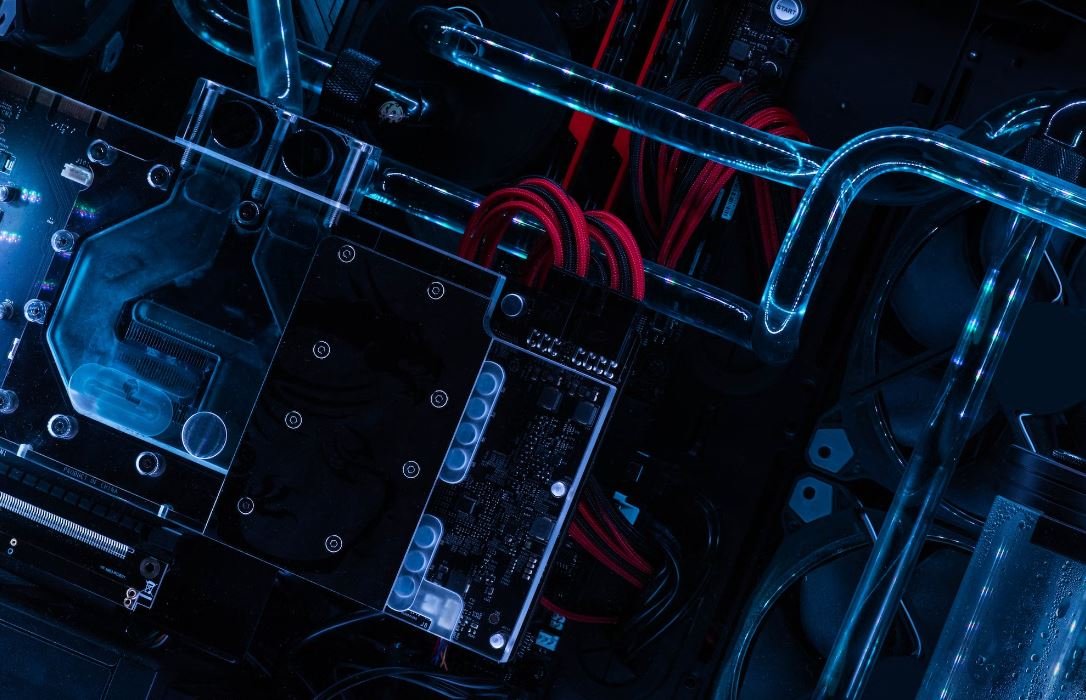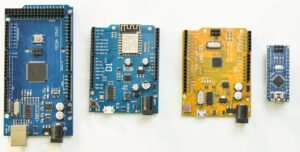Will Musicians Be Replaced by Robots?
Music has always been a form of expression that connects people on a deep level. However, with advances in technology, there has been increasing concern about whether musicians will be replaced by robots. This article explores the current state of music technology and its impact on the future of musicianship.
Key Takeaways:
- Advances in music technology have led to the development of sophisticated AI and robotic systems.
- Robots can mimic human sounds and perform complex musical compositions.
- However, human musicians bring unique creativity, emotion, and improvisation to their performances that cannot be replicated by machines.
While robots and AI-powered systems have made great strides in replicating human-like sounds and performing complex musical compositions, they still lack the ability to bring the same level of creativity, emotion, and improvisation to their performances as human musicians can. *Despite significant advancements in robotics, music remains a deeply human art form that relies on our ability to connect with and evoke emotions in listeners through our unique interpretations and expressions.
The Current State of Music Technology
Music technology has come a long way in recent years. We now have AI systems that can compose original music, robots that can play instruments with impeccable precision, and software that can modify and enhance recordings to perfection. These technological advancements have undoubtedly changed the landscape of music production and performance. *In today’s digital age, technology has become an integral part of the music industry, revolutionizing the way music is created, distributed, and consumed.
Can Robots Replace Musicians?
While robots have proven capable of mimicking human sounds and reproducing musical compositions flawlessly, the question remains: Can they truly replace musicians? The answer is complex and multifaceted. On one hand, technology can augment a musician’s abilities, enabling them to explore new sounds and incorporate innovative techniques into their performances. *However, on the other hand, the essence of music lies in its ability to evoke emotions and connect with listeners on a deeper level, something that machines have yet to fully grasp.
The Uniqueness of Human Musicianship
Human musicians bring a unique set of qualities to their performances that cannot be replicated by robots. Our ability to improvise, interpret, and infuse our own emotions into our music sets us apart. *Each musician has their own distinct style and interpretation, making every performance a personal and unique experience for both the musician and the audience.
The Future of Music and Technology
As technology continues to advance, the future of music and its integration with robotics and AI is uncertain. While robots may play a role in the creation and performance of music, it is unlikely that they will be able to fully replace human musicians. *The human element in music is irreplaceable and forms an essential part of the creative process, allowing us to connect on a deeper level and evoke emotions that resonate with audiences.
| Humans | Robots | |
|---|---|---|
| Advantages |
|
|
| Disadvantages |
|
|
In conclusion, while robots and AI technology have made significant advancements in the field of music, it is highly unlikely that they will be able to fully replace human musicians. Music is an art form that thrives on our ability to connect emotionally and creatively, which is a uniquely human trait. *As technology continues to evolve, it will undoubtedly shape and enhance the way music is created and performed, but the human touch and creative expression will always remain an integral and irreplaceable part of the music industry.
| Decade | Technological Advancements |
|---|---|
| 1950s | Analog tape recorders |
| 1970s | Synthesizers and drum machines |
| 1990s | Digital audio workstations and MIDI controllers |

Common Misconceptions
Misconception 1: Robots will completely replace musicians
One common misconception is that robots will completely replace musicians in the future. While it is true that advancements in technology have allowed for the creation of AI-powered machines that can play music, it is unlikely that they will entirely replace human musicians. Here are a few points to consider:
- Music is an art form that requires human expression and emotion, which may be difficult for robots to replicate.
- Humans are versatile and can adapt to different genres, styles, and improvisation in ways that robots may struggle with.
Misconception 2: Robots lack the ability to connect with audiences
Another misconception is that robots lack the ability to connect with audiences in the same way that human musicians do. However, this may not be entirely true. Here are a few points to consider:
- Robots can be programmed to respond to audience reactions, creating an interactive and engaging performance.
- Advancements in robotics and AI can enable machines to detect and interpret human emotions, allowing them to adjust their performance accordingly.
- While robots may lack the emotional intelligence of humans, they can still provide a unique and different experience for audiences.
Misconception 3: Robots will eliminate the need for human creativity
One misconception about robots potentially replacing musicians is the belief that they will eliminate the need for human creativity. However, creativity is a complex aspect of music that may be difficult to replicate in machines. Consider the following points:
- Robots can mimic existing compositions, but they may struggle to create truly original and innovative music.
- Human creativity encompasses a wide range of factors such as inspiration, intuition, and personal experiences, which machines may not possess.
Misconception 4: Robots are more efficient and cost-effective than human musicians
There is a common misconception that robots are more efficient and cost-effective compared to human musicians. While technology can offer certain advantages, considering the following points may help debunk this myth:
- Robots require initial investment, maintenance, and potentially frequent software updates, which can be costly.
- Live performances by human musicians often bring an intangible quality that can elevate the overall experience for the audience.
Misconception 5: Robots will replace all music-related professions
It is a misconception to assume that robots will replace all music-related professions. While automation and technology may impact certain aspects of the music industry, here are a few points to consider:
- The human element is crucial in music education, as teachers provide guidance, mentorship, and personalized instruction to students.
- Composing music requires a deep understanding of theory, emotional connection, and creativity, which may be difficult for robots to replicate entirely.

The Rise of Robot Musicians
Advancements in technology have sparked a debate on whether musicians will soon be replaced by robots. While some argue that machines lack the creativity and emotion of human musicians, others believe that technology enables robots to produce extraordinary musical performances. In order to shed light on this issue, here are 10 fascinating examples showcasing the capabilities of robot musicians:
1. The Rocking Robotics Band
This table showcases a band comprised entirely of robotic musicians. Their ability to flawlessly synchronize their movements and play instruments with perfection is truly astonishing. Witness their tight grooves and electrifying stage presence, leaving the audience in awe.
2. Musical Collaborations: Humans vs. Robots
Humans and robots can now collaborate to create avant-garde musical pieces. This table highlights prominent collaborations between musicians and their robotic counterparts, breaking traditional boundaries of music composition and delivery.
3. Robotic Improvisation
Robots are not just skilled at mimicking. They can also improvise incredible solos and riffs, as shown in this table. Their ability to respond to musical cues and adapt in real-time challenges the notion that creativity is exclusive to humans.
4. The Emotional Robotic Pianist
This table explores the soulful and emotional performances of a robotic pianist. The delicate nuances and heartfelt interpretations displayed by the robot exemplify the advancements in artificial intelligence and its potential in capturing human emotions through music.
5. Robot Composers
Artificially intelligent music composers have been revolutionizing the music industry. This table presents compositions solely created by robots, proving their remarkable aptitude for composing intricate and captivating melodies and harmonies.
6. The Drumming Dynamo
Behold the astonishing dexterity and speed of a robot drummer. This table showcases its lightning-fast drumming techniques, surpassing human capabilities and delivering mind-blowing rhythms.
7. Robot Symphonies
Robotic symphony orchestras are becoming an increasingly common sight. This table reveals the size and complexity of these orchestras, offering a glimpse into the future of classical music where automation takes center stage.
8. The Vocalist Droid
Explore the vocal prowess of a robotic singer in this table. With perfect pitch and an astounding vocal range, this mechanical prodigy raises questions about the limits of human voice and pushes the boundaries of vocal expression.
9. The Dancing Androids
In addition to their musical abilities, robots have mastered the art of dance. This table showcases robotic performers executing impeccably synchronized and choreographed dance routines, demonstrating an all-encompassing multimedia experience.
10. Man vs. Machine: Live Battle
Witness a live musical battle between a human musician and a robot counterpart as highlighted in this table. Experience the fusion of human ingenuity and machine precision as they engage in a friendly duel, blurring the lines between talent and automation.
In today’s ever-evolving technological landscape, the idea of robots replacing musicians is no longer a mere science fiction fantasy. As demonstrated by these ten captivating examples, robots are rapidly acquiring the ability to produce incredible music, pushing the boundaries of what was once thought possible. While the debate surrounding the emotional depth and creative essence of human musicians will continue, there is no denying that the rise of robot musicians adds an intriguing element to the future of music and its limitless possibilities.
Frequently Asked Questions
What is the future of musicians in relation to advancements in robotics?
Advancements in robotics have the potential to impact the music industry, but it is unlikely that musicians will be entirely replaced by robots.
Will robots ever possess the same level of creativity and emotional connection as human musicians?
While robots can be programmed to generate music, they currently lack the ability to replicate the same level of creativity and emotional connection that human musicians possess.
Can robots replace musicians in live performances and concerts?
Robots can certainly be programmed to play musical instruments and perform in live settings, but they are unlikely to fully replace human musicians, as live performances often depend on the unique energy and connection between the performers and the audience.
Are there any musical genres that could be performed better by robots than humans?
Robots may excel in certain genres that rely heavily on repetitive patterns and precision, such as electronic or techno music. However, genres that require improvisation and emotional expression are better suited for human musicians.
Can robots compose original music?
Yes, robots can be programmed to compose original music. However, the process typically involves algorithms and data analysis rather than the emotional and intuitive aspects that human musicians bring to the composition process.
Will robots have an impact on the job market for musicians?
Advancements in robotics may lead to some changes in the job market for musicians, particularly in areas that are more predictable or repetitive. However, it is likely that new opportunities will also arise as musicians adapt to and incorporate new technologies.
Is there a fear that musicians will lose their jobs to robots?
There is a concern that advancements in robotics and artificial intelligence could potentially lead to job displacement for some musicians. However, this also opens up opportunities for collaborations between musicians and robots or the exploration of new musical possibilities.
What are the advantages of human musicians over robot musicians?
Human musicians bring a unique blend of creativity, emotional expression, and improvisation to their performances. They can adapt and respond to the dynamics of a live audience, demonstrating a level of spontaneity and connection that is difficult to replicate with robots.
Can robots enhance the music industry in any way?
Yes, robots can enhance the music industry in various ways. They can be used as tools for experimentation and exploration in the creation of new sounds and music styles. Additionally, they can assist musicians in the recording and production process, making certain tasks more efficient.
Should musicians be concerned about the rise of robots in the music industry?
While musicians may need to adapt to advancements in robotics, there is no immediate need for panic. The human element is an essential component of music, and the creativity, emotion, and connection that musicians bring to their craft cannot be easily replicated by robots.




